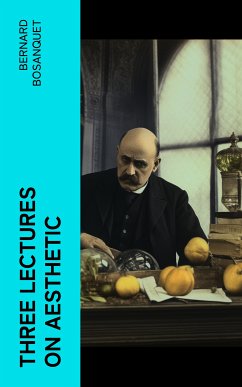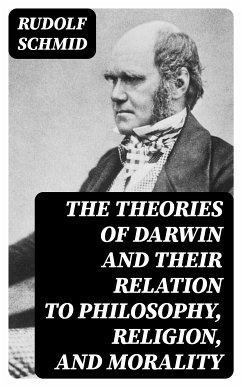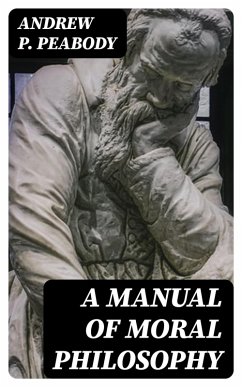
Three Lectures on Aesthetic (eBook, ePUB)
Versandkostenfrei!
Sofort per Download lieferbar
1,99 €
inkl. MwSt.
Weitere Ausgaben:

PAYBACK Punkte
0 °P sammeln!
In "Three Lectures on Aesthetic," Bernard Bosanquet embarks on an exploration of the nature of aesthetics as a philosophical discipline, deftly situating his analysis within the broader context of idealist philosophy. Bosanquet's lectures elucidate the complex interplay between beauty, art, and human perception, emphasizing the role of the observer as an active participant in experiencing art. His literary style is marked by a nuanced sophistication, reflective of the late 19th and early 20th-century aesthetic discourse, engaging with contemporaries such as Tolstoy and Ruskin, while arguing cr...
In "Three Lectures on Aesthetic," Bernard Bosanquet embarks on an exploration of the nature of aesthetics as a philosophical discipline, deftly situating his analysis within the broader context of idealist philosophy. Bosanquet's lectures elucidate the complex interplay between beauty, art, and human perception, emphasizing the role of the observer as an active participant in experiencing art. His literary style is marked by a nuanced sophistication, reflective of the late 19th and early 20th-century aesthetic discourse, engaging with contemporaries such as Tolstoy and Ruskin, while arguing crisply against their more simplistic interpretations of art's purpose and value. Bosanquet, an influential figure in British idealism, was deeply interested in the intersection of philosophy and art, informed by his extensive education and close associations with the London School of Philosophy. His background in logic and ethics contributes richly to his arguments, enabling him to approach aesthetics not just as an artistic phenomenon but as a vital element of comprehensive human experience. This intellectual milieu, characterized by a lingering Romantic sensibility, undoubtedly shaped his innovative perspectives on artistic expression. "Three Lectures on Aesthetic" is a compelling read for anyone interested in the philosophical underpinnings of art and beauty. Bosanquet's incisive insights challenge readers to reconsider their perceptions of aesthetics, making it a vital resource for students and scholars alike. This book not only enriches the field of aesthetics but also serves as a profound reflection on the human condition through the lens of art.
Dieser Download kann aus rechtlichen Gründen nur mit Rechnungsadresse in A, B, BG, CY, CZ, D, DK, EW, E, FIN, F, GR, H, IRL, I, LT, L, LR, M, NL, PL, P, R, S, SLO, SK ausgeliefert werden.













